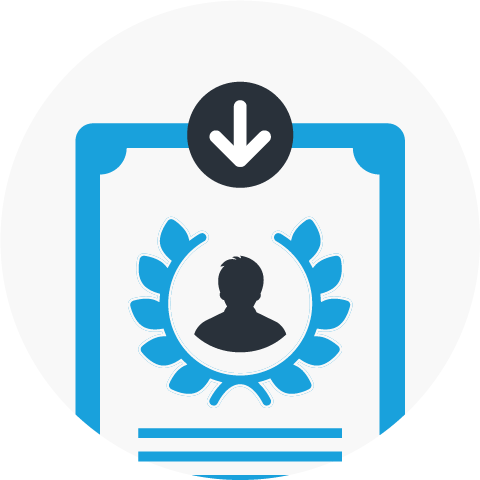Here at Training Qualifications UK, we offer over 300 qualifications that provide learners with the knowledge and skills they need to power their careers forward. We’re really proud of our qualifications and the impact they have on people’s lives, so every month we’ll shine the spotlight on one of them and explain a little about it in our Qualification of the Month feature.
For August, our Qualification of the Month is the TQUK Level 2 Certificate in Understanding Children and Young People’s Mental Health (RQF). Statistics show that more and more young people in the UK are struggling with mental health issues, and the COVID-19 pandemic has only added to the problem.
We believe that education is part of the solution to these challenges. Greater understanding and the increased confidence that this understanding brings can empower people to identify mental health challenges in young people and provide the necessary help.
The stats behind mental health
In June 2020, the mental health charity, Mind, noted that 1 in 4 people experience a mental health problem of some kind each year in England. The range of issues people struggle with is very broad and includes generalised anxiety disorder, post-traumatic stress disorder and depression.
COVID-19 has only complicated these issues. Due to the increased demand and pressure on the NHS throughout the pandemic, it’s become more difficult to access support when individuals are suffering with their mental health. After completing our qualification, anyone can be that support for people who aren’t able to access the necessary help through normal channels such as the NHS.
The Mental Health Foundation has tracked the country’s mental wellbeing during the pandemic and found it’s changed dramatically at different times, depending on the severity of the virus and nature of the restrictions in place.
For example, in the run-up to Christmas when restrictions seemed to be lifting only to change at the last minute, over half (54%) of UK adults felt anxious or worried because of the pandemic. Loneliness increased too, with 37% of 18-24 year olds saying they felt physically and emotionally isolated from others at this point of the pandemic.
The loosening of restrictions and rollout of the vaccination has helped settle many people’s minds, but mental health remains a significant concern. In its most recent survey (conducted in February 2021), The Mental Health Foundation discovered that while anxiety and stress have declined of late loneliness hasn’t returned to its pre-lockdown level. What’s more, 35% of 18-24 year olds have reported feelings of hopelessness, an increase from 28% in March 2020.
Even when the pandemic fades and life gets back to normal, it’s unlikely that the issues the country faces with mental wellbeing will get better – especially where the young are concerned. The Children’s Society reports that the likelihood of children having a mental health issue has increased by 50% in the last three years.
However, support has not increased at the same rate and the same research shows that 75% of young people with mental health issues aren’t getting the help they need.
What does the Qualification include?
Systemic improvement is necessary to change things, but there’s a role that each of us can play too. With five in a classroom of 30 children likely to have a mental health issue, an overwhelming majority of the population will know a child or young person who may be struggling.
Helping enhance people’s knowledge of mental health issues and giving them the skills to provide actionable help is a critical tool in doing this, and we’re proud of the role the TQUK Level 2 Certificate in Understanding Children and Young People’s Mental Health (RQF) can play in this.
In order to provide learners with a rounded learning experience, the qualification is comprised of a number of mandatory units that give them a 360-degree understanding of the key principles. The units cover everything from the causes of mental health issues and the legislation designed to protect people experiencing them, to the risks involved and how to minimise them.
As is appropriate for such an important subject, the qualification is quite long: learners will get to grips with the subject across 106 Guided Learning Hours and a Total Qualification Time of 135 hours. But their journey doesn’t have to stop there.
Once they’ve successfully completed the qualification, learners can progress onto other qualifications such as the:
- TQUK Level 3 Certificate in Understanding Mental Health Care (RQF)
- TQUK Level 3 Award in the Awareness of the Mental Capacity Act 2005 (RQF)
- TQUK Level 3 Diploma for the Children and Young Peoples Workforce (RQF)
They may also want to expand their learning into other areas of Childcare at the same level with qualifications such as the:
- TQUK Level 2 Award in Introduction to Health, Social Care and Children’s and Young People’s Settings (RQF)
- TQUK Level 2 Award in Promoting Food Safety and Nutrition in Health and Social Care or Early Years and Childcare Setting (RQF)
How to take this qualification if you’re a learner:
The TQUK Level 2 Certificate in Understanding Children and Young People’s Mental Health (RQF) is available through The Skills Network (TSN) meaning that learners are equipped with TSN’s comprehensive range of paper-based and online resources and can complete their course via TSN’s award-winning online learning platform, EQUAL.
Learners can start the qualification when they please as it’s an online course that doesn’t require a college enrollment. The qualification is fully funded meaning that all it will cost them is their time to make a big difference to a young person’s life.
How to start delivering the qualification if you’re a centre:
If you’d like to add the TQUK Level 2 Certificate in Understanding Children and Young People’s Mental Health to your qualifications portfolio or find out more information about it, we’d love to talk to you.
Simply get in touch with our Business Development team or your account manager and they’ll be able to walk you through the process.


















